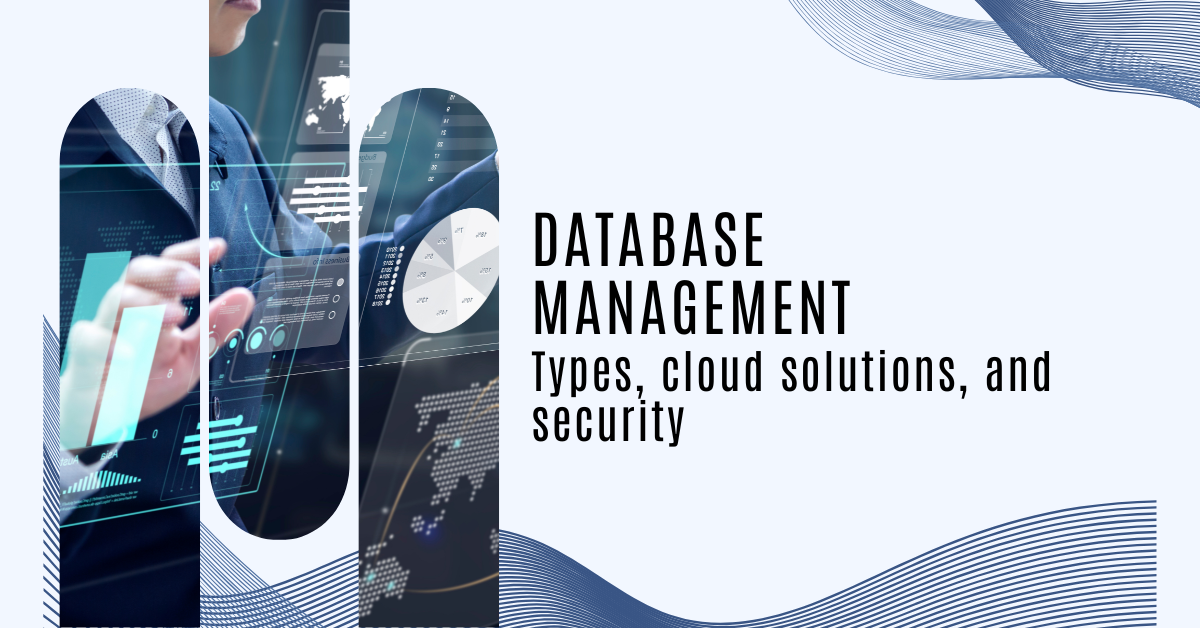Database Management: Types, cloud solutions, and security
Effective database management is essential for modern businesses. It ensures that data is stored, accessed, and managed properly. Understanding different types of database management systems is vital for aligning them with business needs. This guide will cover the basics, types, software options, cloud solutions, and security practices.
Table of Contents
Core concepts in managing databases
What is database management? It refers to the processes used to control and oversee the organization, storage, and retrieval of data. A well-functioning database management system ensures that data remains accurate and accessible. These systems play a crucial role in supporting business operations and decision-making.
Overview of database management systems
There are various types of database management systems that cater to different data needs:
- Relational Database Management Systems (RDBMS): These systems organize data into tables linked by relationships. They support complex queries and ensure data integrity. Popular examples include MySQL, PostgreSQL, and SQL Server.
- Hierarchical Database Management Systems: These arrange data in a tree-like structure, with parent-child relationships. This model works well for applications that need structured, hierarchical data organization.
- Network Database Management Systems: They expand on hierarchical models by allowing more complex relationships between data entries. This structure is suitable for systems with intricate data connections.
- Object-Oriented Database Management Systems: These handle data as objects, similar to programming language structures. They are ideal for applications managing multimedia and complex data types.
Importance of cloud solutions
Cloud database management offers several advantages for organizations. Cloud-based solutions allow data to be accessed from anywhere with an internet connection. This eliminates the need for extensive on-premises infrastructure. Cloud database management supports growing data needs and simplifies maintenance.
Popular database management software
Choosing the right database management software depends on various factors, including data requirements, technical capabilities, and budget. Some of the most used software include:
- Oracle Database: Known for its advanced capabilities in handling large-scale data and supporting complex database environments.
- MongoDB: A NoSQL database that handles unstructured data efficiently and is suitable for fast-growing applications.
- Microsoft SQL Server: Widely used for managing structured data with a user-friendly interface and extensive support for enterprise applications.
Key practices for data security
Database security and management are critical to prevent data breaches and protect sensitive information. Businesses must implement various measures to keep their data safe:
- Encryption: Ensures that data is unreadable without proper decryption keys.
- Access control: Restricts data access to authorized personnel only. This step minimizes the risk of unauthorized actions.
- Data masking: Protects data by hiding sensitive information from users who do not need full access.
In cloud database management, security becomes even more significant. Organizations must adopt multi-factor authentication, conduct regular security audits, and implement backup protocols. These steps help maintain the integrity and safety of cloud-stored data.
Choosing the right management strategy
Understanding what is database management helps organizations select the right database management system. The system chosen should align with business goals and data requirements. Evaluating different types of database management systems can guide decision-making and ensure efficient data handling.
Best practices for database security
Securing data goes beyond the selection of database management software. Regular updates, patching, and monitoring are necessary to address potential vulnerabilities. Database security and management practices should be reviewed regularly to align with industry standards and evolving threats.
Connect with Novas Arc
Comprehensive database management ensures data remains organized, accessible, and secure. The use of an effective database management system and proper database management software are crucial for operational success. Businesses must prioritize database security and management to protect data assets.
FAQs
Q1. What is meant by database management?
Database management refers to the process of organizing, storing, and maintaining data within a structured system to ensure accessibility, consistency, and security. It includes creating, modifying, and managing data and database structures to support business operations.
Q2. What is DBMS with an example?
A Database Management System (DBMS) is software that helps manage databases by providing tools for data storage, retrieval, and manipulation. An example of a DBMS is MySQL, which organizes data in tables and supports SQL queries for data handling.
Q3. What is DBMS and its application?
A DBMS is software that allows users to create and manage databases efficiently. Applications of DBMS include managing data for business operations, handling customer records in CRM systems, or supporting large-scale transactions in e-commerce platforms.
Q4. What is the role of database management?
The role of database management is to ensure data is organized, accessible, and secure. It supports data consistency, enhances data sharing, and facilitates decision-making. Proper database management also protects data against unauthorized access and loss.
Author








